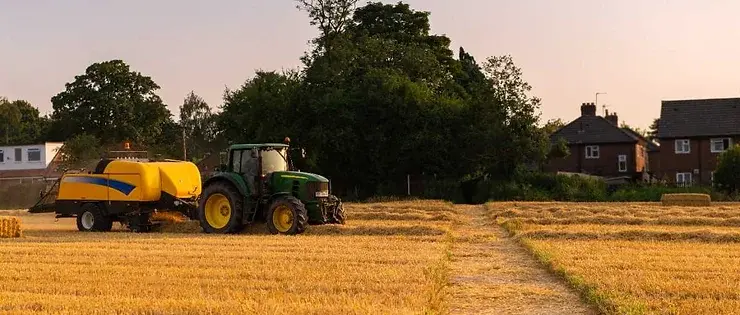Broadacre farming requires more than just putting seeds and fertilisers in the ground. To have healthy crops, you must manage soil health, for which balancing the fertilisers is necessary. A productive farm is about maintaining a balance of the right nutrients in the soil that grow high-quality feed and support long-term sustainability.
Let’s dive into the importance of balancing fertiliser for farming and how it plays a pivotal role in broadacre crop production.
Why Balanced Fertiliser Matters in Broadacre Farming
Broadacre farming refers to large-scale crop production, here a large piece of land is used to commercially grow crops. But, with continuous crop production and harvest, soil’s nutrients get depleted as they get used by previous season crops. Without replenishing these nutrients a farmer can’t grow new season crops properly as there will be scarcity of nutrients. This will lead to lower yields, poor crop quality, and an unsustainable farming cycle.
Balancing soil fertilisers will make sure that it has the right mix of nutrients, like nitrogen, phosphorus, potassium, and other micronutrients. All these nutrients have distinct roles in plant health. Nitrogen promotes leaf growth, potassium improves plant health, and phosphorus supports root development and flowering. Shortage of these nutrients mean halted growth, whereas excess of them means deteriorating plant health. Signs of fertiliser imbalance include yellowing leaves, wilting stems, browning leaf tips, or rotting leaves. Balanced fertilisers help crops survive the extreme Australian climate.
Understanding Your Soil’s Nutrient Needs
Farming is not universal and one method of production or fertiliser use does not guarantee success on all agricultural lands. To make sure that your farm’s soil is getting balanced fertiliser, you need to understand its needs first. Perform soil tests by taking soil samples from different parts of your farm, this way you will get exact idea of soil nutrient deficiencies.
A single nutrient quantity, if out of place, can create disbalance to the whole produce.
The Role of Nitrogen in Crop Production
Nitrogen takes up more than three-quarters of Earth’s atmosphere and is necessary for all living organisms’ survival.
Plants badly need nitrogen as its basic unit of proteins- amino acids depend on nitrogen. The enzymes that influence metabolic processes also depend on this natural element. Now let’s get really into it, the chlorophyll required for photosynthesis, guess what it is made up of? Its composition includes nitrogen elements. It should be noted that if nitrogen is not sufficiently available in the soil, then it may lead to a plant’s inability to produce proteins. These proteins are essential for their development, reproduction, and survival.
If we look at the prime nutrients- Nitrogen, Phosphorus and Potassium, the Nitrogen element is considered paramount. It encourages root growth in plants, increases the uptake of nutrients from the soil, and is very important for the growth of green tissues. For a farmer, Nitrogen must be present at an adequate level to gain maximum return on crops.
Timing Is Key: When to Apply Fertilisers
In broadacre farming, timing is everything. Applying fertilisers at the right time can make a significant difference in crop yields and quality. Most farmers apply fertiliser at the start of the growing season, just before planting. This gives crops the nutrients they need to establish themselves and begin growing.
However, in some cases, you may need to apply broadacre farming fertiliser later in the season, especially if your crops show signs of nutrient deficiency. For instance, if your wheat is turning yellow, it could be a sign that the plants need more nitrogen. By applying a top-up of fertiliser during the growing season, you can help your crops recover and continue to grow strong.
It’s also important to consider the weather when applying fertiliser. Heavy rain can wash away nutrients before they have a chance to be absorbed by the plants, leading to wasted products and money. On the other hand, applying fertiliser during a dry spell can cause the nutrients to sit in the soil without being absorbed. The best time to apply fertiliser is when there is enough moisture in the soil for the plants to absorb the nutrients but not so much that they get washed away.
The Backbone of Broadacre Success
Balanced fertilisers are a critical component in broadacre farming. They help ensure that your soil has the right mix of nutrients to support healthy crops, which in turn provides high-quality feed for your cattle. By understanding your soil’s needs and applying the correct fertiliser for farming at the right time, you can keep your land productive and sustainable.
For Aussie cattle producers, the message is simple: look after your soil, and it’ll look after your crops, which ultimately looks after your herd. The use of balanced broadacre farming fertilisers is essential for long-term farm health, productivity, and profitability.
Keep an eye on your soil, feed it well, and your farm will thrive for years to come. That’s the way to keep everything running smoothly – no worries!




